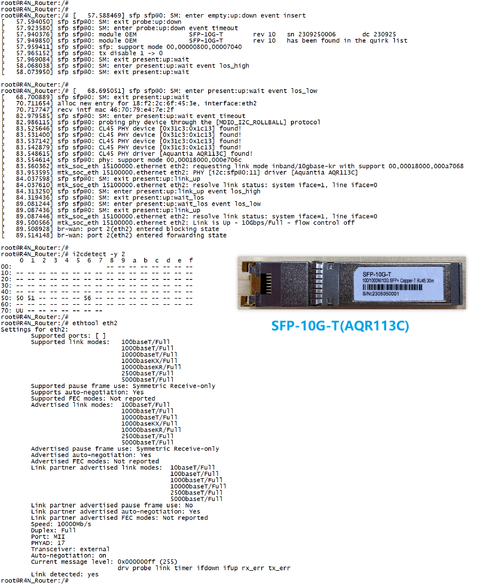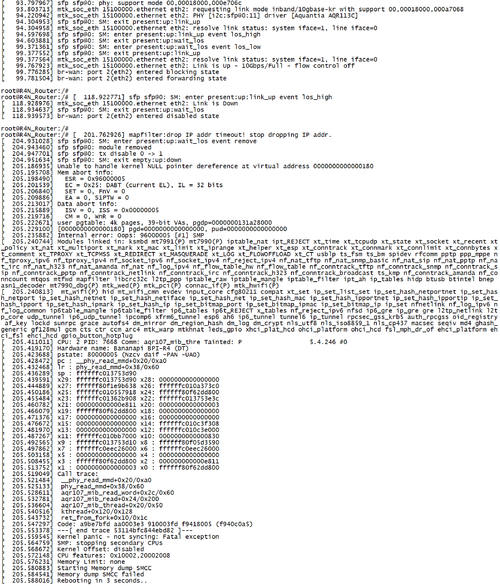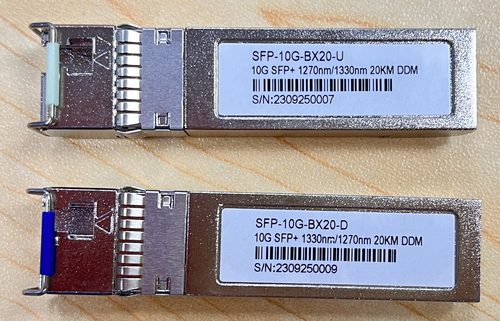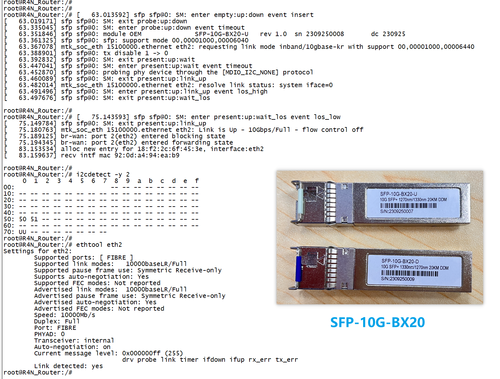Difference between revisions of "Getting Started with BPI-R4"
(→Accessories) |
(→1.10G SFP+ Copper) |
||
| Line 39: | Line 39: | ||
[[File:BPI-R4 SFP-10G-T(AQR113C).png|500px]] | [[File:BPI-R4 SFP-10G-T(AQR113C).png|500px]] | ||
| + | |||
Note: Do not pull out the module once it is inserted, otherwise it will cause BPI-R4 to restart. | Note: Do not pull out the module once it is inserted, otherwise it will cause BPI-R4 to restart. | ||
[[File:BPI-R4 SFP-10G-T(AQR113C)-Pull out reboot.png|500px]] | [[File:BPI-R4 SFP-10G-T(AQR113C)-Pull out reboot.png|500px]] | ||
| − | |||
===2. 10G SFP+ Fibre=== | ===2. 10G SFP+ Fibre=== | ||
Revision as of 18:08, 7 October 2023
Contents
Introduction
MediaTek MT7986(Filogic 830)
Key Features
Development
Basic Development
Prepare to develop
* Prepare 8G/above TF card, USB-Serial cable, Ubuntu System
* Using your USB-Serial cable Connect to debug console on BPI-R4
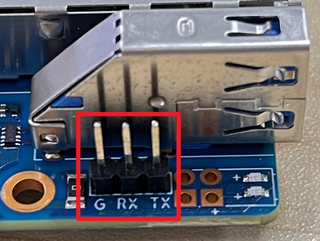
* BPI-R4 bootstrap and device select Jumper Setting
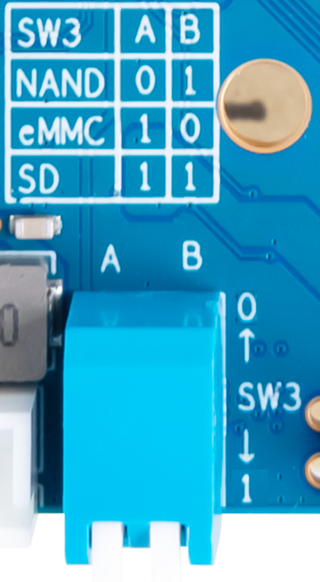
* Examples:
All Jumper is "1", BPI-R4 will boot from SD card
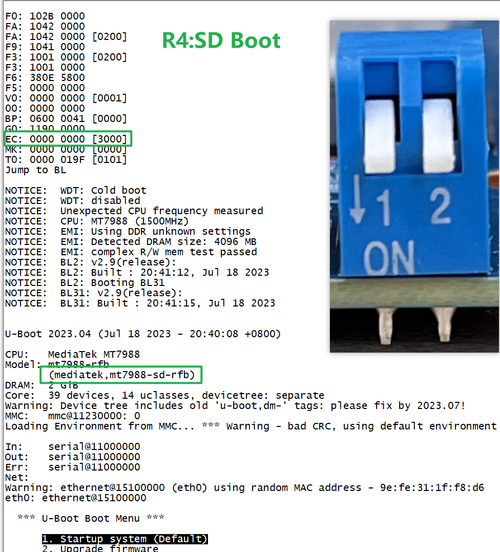
SW3-A is "0" and SW3-B is "1" , BPI-R4 will boot from SPI NAND
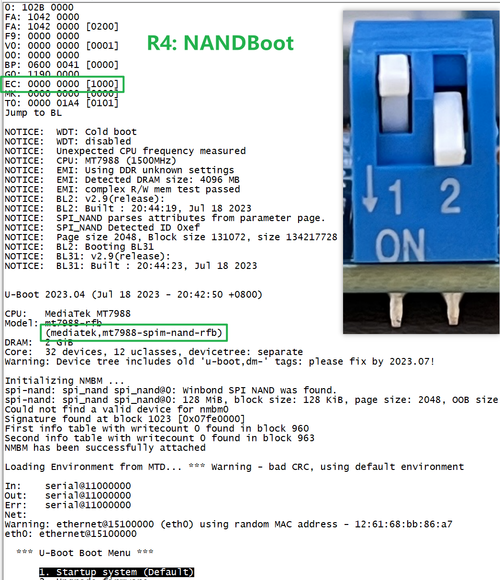
SW3-A is "1" and SW3-B is "0" , BPI-R4 will boot from eMMC
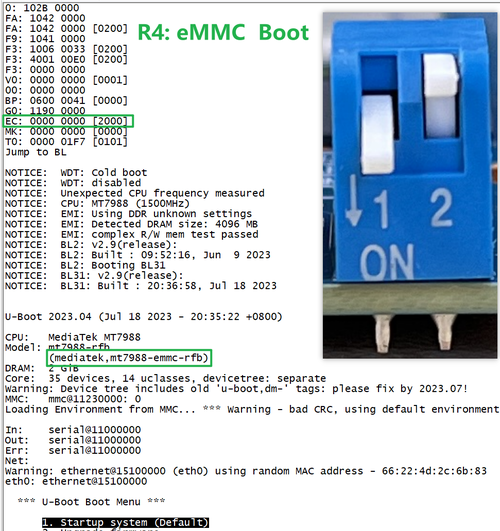
Accessories
1.10G SFP+ Copper
Note: Do not pull out the module once it is inserted, otherwise it will cause BPI-R4 to restart.
2. 10G SFP+ Fibre
3.4G/5G Module
4. SSD
5. Asia mPCIe WiFi6/WiFi6E

